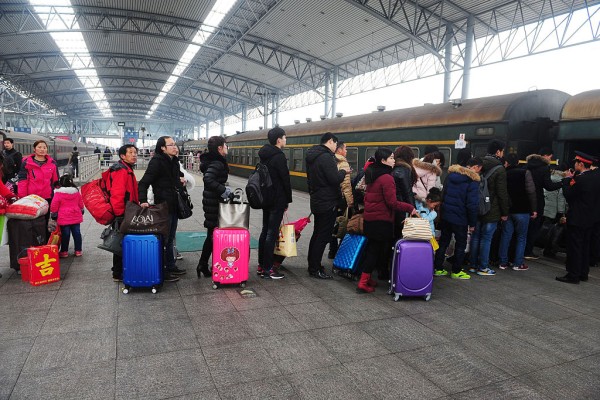Chinese Lunar New Year 2016, as expected, resulted in the biggest mass migration in China as millions of migrant workers when home for the Spring Festival. However, a growing number of them bought only one-way tickets.
That’s because reverse migration is starting to grow in China as more people opt to return to their home provinces to start businesses rather than work in polluted and gridlock cities. The reason behind the growing number of Chinese workers who opted to stay for good in rural areas after traveling home during the Spring Festival is because of better opportunities now available, reported Global Times.
The impact is not just economic, but also social, as working adults with children left with their elderly parents now get to rear their offspring and allow their older kin to rest. In Chongqing, over 1.72 million migrants have come back since 2010, resulting in the number of “left behind children” reduced by about 180,000 in the past three years.
But the challenge to bring back more is greater since there are about 270 million migrant workers in China, 60 percent of whom have jobs outside their hometowns. Some remained migrant employees, but opted to seek employment in nearer provinces rather than return to the rat race in Shanghai or Beijing.
Convincing more Chinese to stay put after the Lunar New Year holiday ends would mean reducing in 2017 the 2.91 billion passenger volumes that is expected for the 2016 yearly mass migration in China, according to data from the National Development and Reform Commission. That covers the period Jan. 24 through March 3.
If the migrant workers persuaded to come home for good must stay permanently, local governments should put in place preferential policies to improve the entrepreneurial environment in rural areas since entrepreneurs in the provinces face more challenges in the areas of skills and capital, said Dang Guoying, researcher on rural development with the Chinese Academy of Social Sciences.


